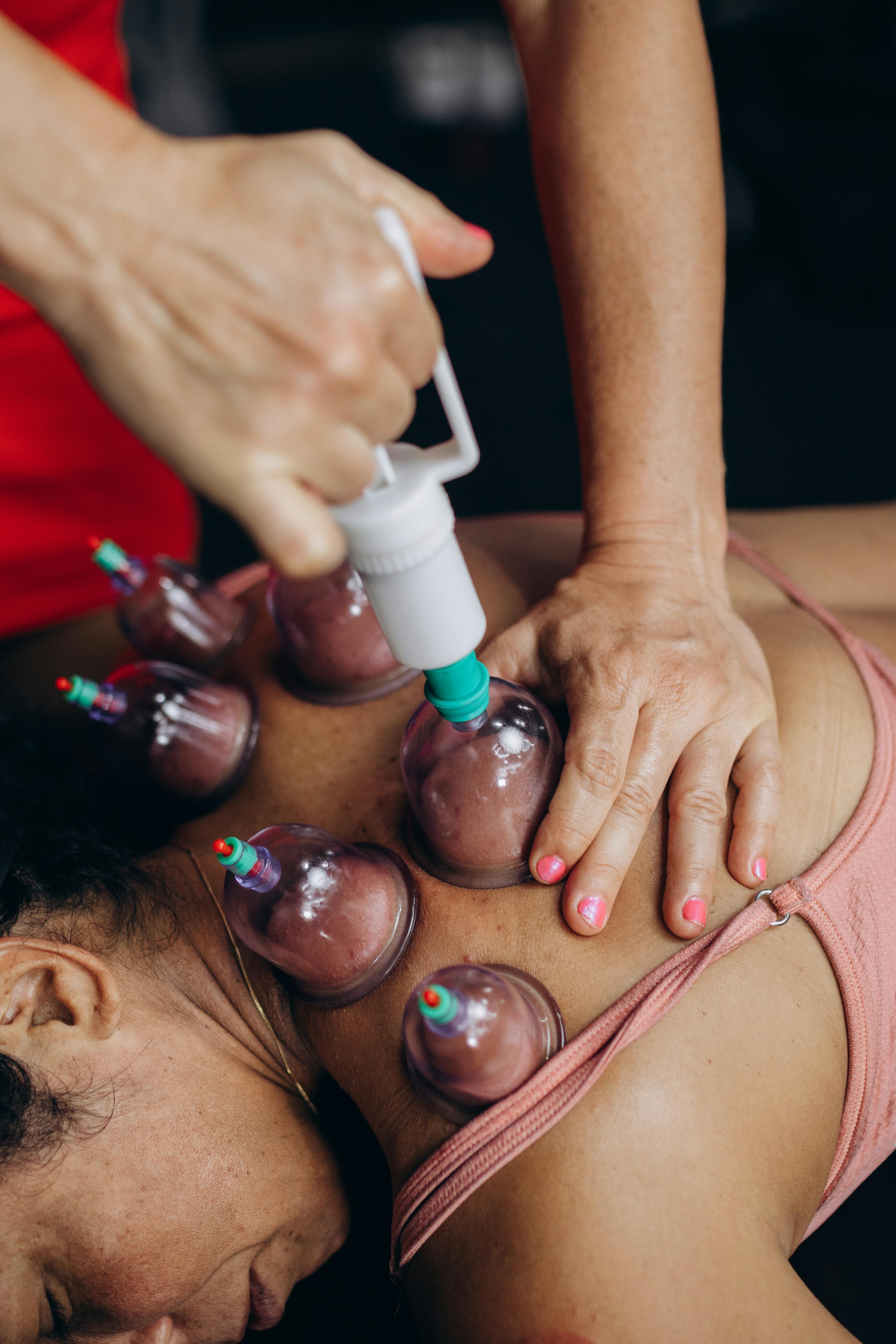How Massage Therapy Can Help Relieve Tension and Improve Your Health
In today's fast-paced world, stress and tension have become unwelcome companions in our daily lives. Fortunately, massage therapy offers a natural and effective way to combat these issues while promoting overall well-being. This ancient practice has evolved into a powerful tool for modern health management, providing relief from physical discomfort and mental strain. Let's explore how massage therapy can help you achieve a more balanced and healthier life.

What exactly is massage therapy and how does it work?
Massage therapy is a hands-on technique that involves manipulating the body’s soft tissues to promote relaxation, reduce pain, and improve overall health. Skilled therapists use various techniques such as kneading, rubbing, and applying pressure to specific areas of the body. This manipulation stimulates blood flow, releases muscle tension, and triggers the body’s natural healing processes.
The effectiveness of massage therapy lies in its ability to affect multiple systems within the body. It can increase circulation, reduce inflammation, and stimulate the release of endorphins – the body’s natural pain-relieving and mood-enhancing chemicals. By addressing both physical and mental aspects of well-being, massage therapy offers a holistic approach to health improvement.
How can massage therapy reduce stress and enhance well-being?
One of the most significant benefits of massage therapy is its ability to reduce stress and promote relaxation. As skilled hands work to release tension from muscles, the body’s stress response begins to diminish. This physical relaxation is often accompanied by a sense of mental calm, helping to clear the mind and reduce anxiety.
Regular massage sessions can lead to long-term stress reduction by lowering cortisol levels – the hormone associated with stress. This reduction in stress hormones can have far-reaching effects on overall health, including improved sleep quality, enhanced immune function, and better emotional regulation. By incorporating massage therapy into your wellness routine, you can discover a powerful tool for managing stress and enhancing your overall sense of well-being.
What are the most effective techniques used in massage therapy?
Massage therapists employ a variety of techniques, each tailored to address specific health concerns or preferences. Some of the most effective and widely used techniques include:
-
Swedish Massage: Known for its gentle, flowing strokes, this technique is excellent for overall relaxation and improving circulation.
-
Deep Tissue Massage: This technique targets deeper layers of muscle and connective tissue, ideal for addressing chronic pain and tension.
-
Trigger Point Therapy: Focused on releasing tight knots in muscles, this technique can provide relief from specific areas of pain.
-
Sports Massage: Designed for athletes, this technique helps prevent injuries, enhance performance, and aid in recovery.
-
Shiatsu: This Japanese technique uses finger pressure on specific points to balance the body’s energy and promote healing.
Each of these techniques offers unique benefits, and a skilled therapist can often combine multiple approaches to create a customized treatment plan that addresses your specific needs and health goals.
How does regular massage improve overall health and flexibility?
Regular massage therapy sessions can have a cumulative effect on your health, leading to improvements in various aspects of physical and mental well-being. One of the key benefits is increased flexibility and range of motion. By working on muscles, tendons, and ligaments, massage helps to loosen tight tissues and improve joint mobility.
This enhanced flexibility not only makes daily activities easier but also reduces the risk of injuries. Additionally, regular massages can improve posture by releasing tension in muscles that may be pulling the body out of alignment. Better posture, in turn, can alleviate chronic pain and reduce the likelihood of developing musculoskeletal issues in the future.
What are some lesser-known benefits of massage therapy?
While many people are familiar with massage therapy’s ability to relieve muscle tension and promote relaxation, there are several lesser-known benefits that make this practice even more valuable:
-
Improved Digestion: Massage can stimulate the digestive system, helping to alleviate issues like constipation and bloating.
-
Enhanced Skin Health: The increased circulation from massage can lead to better skin tone and texture.
-
Boosted Immune Function: Regular massages have been shown to increase the activity of the body’s natural killer cells, which help fight off viruses and other pathogens.
-
Reduced Headaches: Massage can help alleviate tension headaches and migraines by releasing tight muscles in the neck and shoulders.
-
Improved Respiratory Function: Certain massage techniques can help relax chest muscles, leading to easier and deeper breathing.
These diverse benefits highlight the comprehensive nature of massage therapy in supporting overall health and well-being.
How often should one receive massage therapy for optimal benefits?
The frequency of massage therapy sessions can vary depending on individual needs, health goals, and lifestyle factors. However, to experience the full range of benefits that massage therapy offers, consider the following guidelines:
| Frequency | Purpose | Recommended For |
|---|---|---|
| Weekly | Intensive therapy | Chronic pain, high stress levels, athletic training |
| Bi-weekly | Maintenance | General wellness, moderate stress management |
| Monthly | Preventative care | Overall health maintenance, relaxation |
| Quarterly | Seasonal tune-up | General well-being, occasional stress relief |
Prices, rates, or cost estimates mentioned in this article are based on the latest available information but may change over time. Independent research is advised before making financial decisions.
It’s important to note that these are general recommendations, and the ideal frequency may vary based on your specific situation. Consulting with a licensed massage therapist can help you determine the best schedule for your needs. They can also adjust the type and intensity of techniques used based on your progress and changing health goals.
In conclusion, massage therapy offers a wide range of benefits for both physical and mental health. From stress reduction and pain relief to improved flexibility and overall well-being, regular massage sessions can be a valuable addition to your health maintenance routine. By understanding the various techniques available and working with a skilled therapist, you can harness the power of touch to enhance your quality of life and achieve optimal health.
This article is for informational purposes only and should not be considered medical advice. Please consult a qualified healthcare professional for personalized guidance and treatment.




